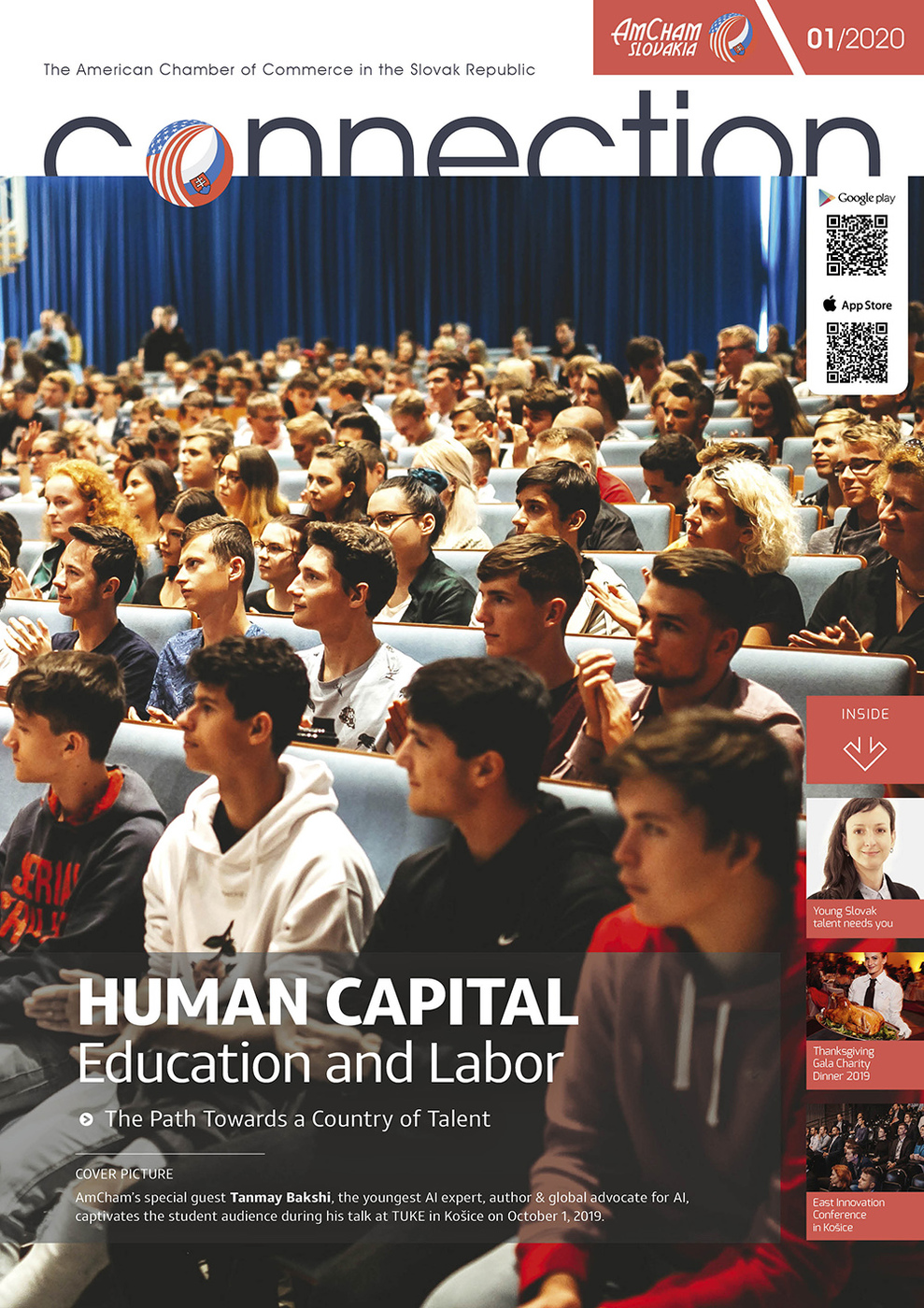What motivated you to start thinking about the shortcomings of the Slovak education system and the possible solutions?
Personal experience and frustration are always the strongest motivators. When I was studying at high school, I felt constantly frustrated by the system. It lacked “practical” knowledge. When we were launching Zmudri, all team members shared the same experience. Therefore, none of us hesitated and everybody was keen to participate in the project and put maximum effort into it.
Very few of the numerous critics of the education system turn their criticism into a project which actually improves the situation. Why is ZMUDRI among these rare examples?
It is true that many individuals fail to execute their ideas. Including myself. It wasn’t a long time ago, when I considered myself more of a “thinker” than a “doer”. There are many reasons behind it. One of them is our culture which has low tolerance for failure. As a result, many people feel discouraged and rather do not take action just not to embarrass themselves by failing. To be honest, I don’t think Zmudri is a rare example. There are many great projects and individuals who are constantly taking risk and attempting to solve social challenges. Zmudri is just at the beginning of its journey.
How do you choose the topics of the videos?
There are many factors which influence the selection of topics. Among them are research articles about education, requests from teachers and students and our personal experience. Moreover, we tend to focus on the topics that are seasonally attractive or which are currently popular in the society. One perfect example is a topic about the Velvet revolution which gained better organic reach due to the fact that the entire nation was talking about the 30th anniversary of the Velvet revolution at that time.
Do you also receive requests for topics from your audience?
Yes we do. Through our feedback forms, we ask students about their preferences. Topics vary from student to student but we are slowly starting to see some patterns. Students are mostly interested in topics concerning their future education, financial situation, career but also some societal issues such as fake news or even cyberbullying.
Besides choosing interesting topics, how do you try to get the attention of this specific target audience?
One of the elements which often work is humor. We strive to make our videos more entertaining thus increasing engagement with the content. However, it is extremely challenging to grab the attention of a teenager. We have still so much to improve in terms of being more entertaining. The second element is showing examples. Specific examples from typical teenager life resonate and lead to a better understanding of a complex content.
What has been the response from the students and the teachers so far?
So far the response has been very good. We collect feedback through online forms and face to face focus groups. Students appreciate practical information, easy to understand content and attractive form. On the other hand, we struggle to reach a wider audience of students.
More than 600 teachers have signed up during our recent campaign, which proves their interest and the fact that they require more educational material for their classes. The challenge will be to ensure teachers use our platform regularly. Therefore, we make a great effort to engage with teachers in person through different events, conferences or school visits.
What is the mistake you see high school students deciding about their life after school make most often?
I can say where I have made mistakes when deciding about my life after high school. When choosing my future university, I did not use critical thinking enough, did not analyze the situation from different perspectives, did not ask for opinions from different people and most importantly did not understand why and how my opinions are built. That’s why we have decided to create a course about choosing one’s future path. In my opinion, high school students nowadays make the same mistakes even though they have a tremendous amount of information at their disposal.
In a little more than a year you have managed to create several videos, start cooperation with numerous high schools, and gain recognition from experts and the media. What are your plans for 2020?
The nearest challenge is a video course about the parliamentary elections and a campaign which should mobilize and educate first time voters. For us it is essential to gain the interest of the youth in the current events and encourage them to participate in the elections.
The second challenge is increasing the number of students and teachers who are using our platform. That could be achieved through consistent content production on a weekly basis, active communication and partnering with other organizations and institutions who are working with youth or educational institutions.
Zmudri is a non-profit online education platform which aims to provide teenagers with practical information through free entertaining video courses. Courses focus on topics such as writing a CV, critical thinking, political system, stress management, financial literacy, etc. Videos are also used by elementary and high school teachers as an educational material during their classes. All the videos can be found at: www.zmudri.sk



Follow us